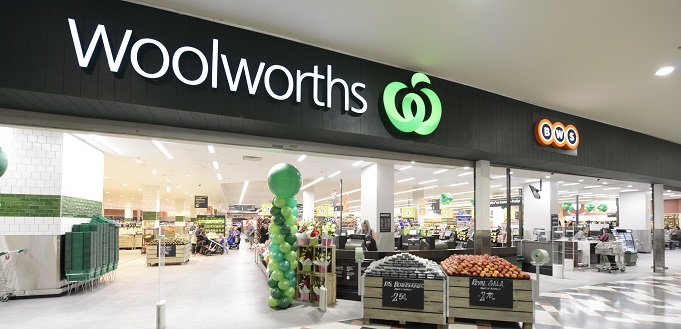
They say they’re done with plastic bags for life, but as the big two supermarkets pledge to get rid of single-use bags forever, have they jumped, or were they pushed?
Retail analysts say despite Woolworths and Coles receiving widespread attention for the decision to ditch single-use plastic bags across their entire store networks in the next 12 months, the announcements are just one more chapter in the backwards-and-forwards approach big Aussie retailers have had to disposable carry goods, and the news comes at a time when five Aussie states have banned the products anyway.
“I think it’s a case of them jumping before they were pushed, retailers were going to do this anyway, and there’s a history of them having already done it — at Target for years, they were charging ten cents a bag,” says retail expert Gary Mortimer, an associate professor at Queensland University of Technology Business School.
Woolworths made the first move on Friday, informing customers that single-use bags were an issue “we need to take a stand on”, according to chief executive Brad Banducci.
The retail giant promised that by the middle of 2018, all Woolworths imprints, including Dan Murphy’s and Big W, will no longer offer lightweight plastic carry bags.
Lightweight plastic bags are currently banned in South Australia, the Northern Territory, the Australian Capital Territory and Tasmania, with Queensland set to follow suit in 2018. Woolworths said the new policy will bring Victoria, New South Wales and Western Australia in line with the aims of these other states
A few hours later, Coles had unveiled plans to employ a similar model.
However, both chains will offer shoppers the ability to purchase more durable bags, starting at a price point of 15 cents for re-usable plastic bags, according to The Australian.
Mortimer suggests there’s nothing particularly new in the approach of the big two supermarkets, which have been keen to remove the million-dollar expense and address the environmental impact of plastic bags for some time. But this could be a market-leading moment for smaller suppliers when it comes to what customers expect from SMEs, he says.
“Removing plastic bags is only one part of the [environmental] problem,” Mortimer says.
“But I think that a blanket ban across Australia on single use plastic bags will be a catalyst for change, and we will see that snowball effect onto other things for businesses, like the takeaway coffee cup,” he says.
Earlier in the year the ABC’s War on Waste program sparked a frenzied interest in reusable coffee cups, with Australian cup maker KeepCup reporting a 400% increase in sales in the week after the program aired.
“A lot of people weren’t aware that we exist as a pretty good solution to this problem. Also, the awareness that we’re an Australian made product has been helping drive the demand,” co-founder Abigail Forsyth told SmartCompany at the time.
Consumer demand for sustainable products and food from smaller businesses is gaining momentum in the hospitality space, according to recent research from point of sale provider Impos. Surveying 652 businesses about their strategy plans and predictions on future food trends, researchers found a majority of company owners placed great stock in promoting “sustainability” measures.
Sixty-four percent of businesses outlined plans to introduce sustainable “grow your own” produce in the next 12 months, while more than one-third of respondents said customers were hungry for local vegan and organic foods.
“More Aussies are interested in where their food is sourced, what they’re putting in their bodies, and the overall impact their food and drink consumption’s having on the environment,” chief executive of Impos Sean O’Meara said last month.
Mortimer agrees more attention on sustainability is inevitable, but says that unlike the big two supermarkets, small businesses are already ahead of the curve; in many cases, independent food businesses sell items in smaller batches to start with.
“Particularly if you’re a small business — when you’re going to a small grocer, you’re only buying a few things [and removing the option of bags is easier]. If you’re going to a supermarket you’re likely buying multiple items, and just banning the bag here is one small step,” he says.
Never miss a story: sign up to SmartCompany’s free daily newsletter and find our best stories on Twitter, Facebook, LinkedIn and Instagram.


COMMENTS
SmartCompany is committed to hosting lively discussions. Help us keep the conversation useful, interesting and welcoming. We aim to publish comments quickly in the interest of promoting robust conversation, but we’re a small team and we deploy filters to protect against legal risk. Occasionally your comment may be held up while it is being reviewed, but we’re working as fast as we can to keep the conversation rolling.
The SmartCompany comment section is members-only content. Please subscribe to leave a comment.
The SmartCompany comment section is members-only content. Please login to leave a comment.